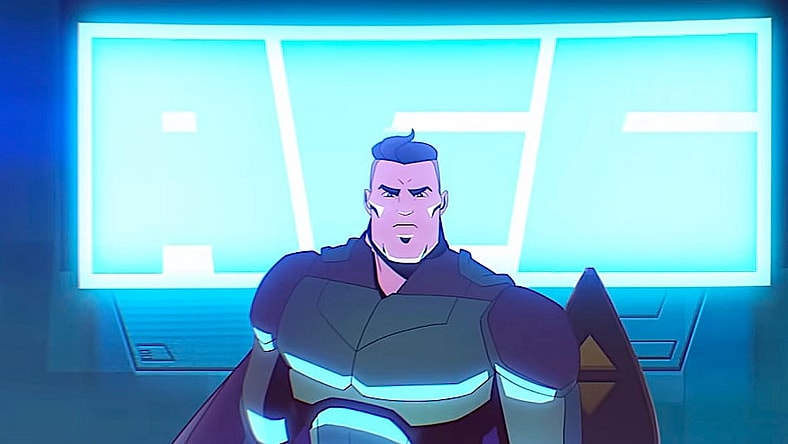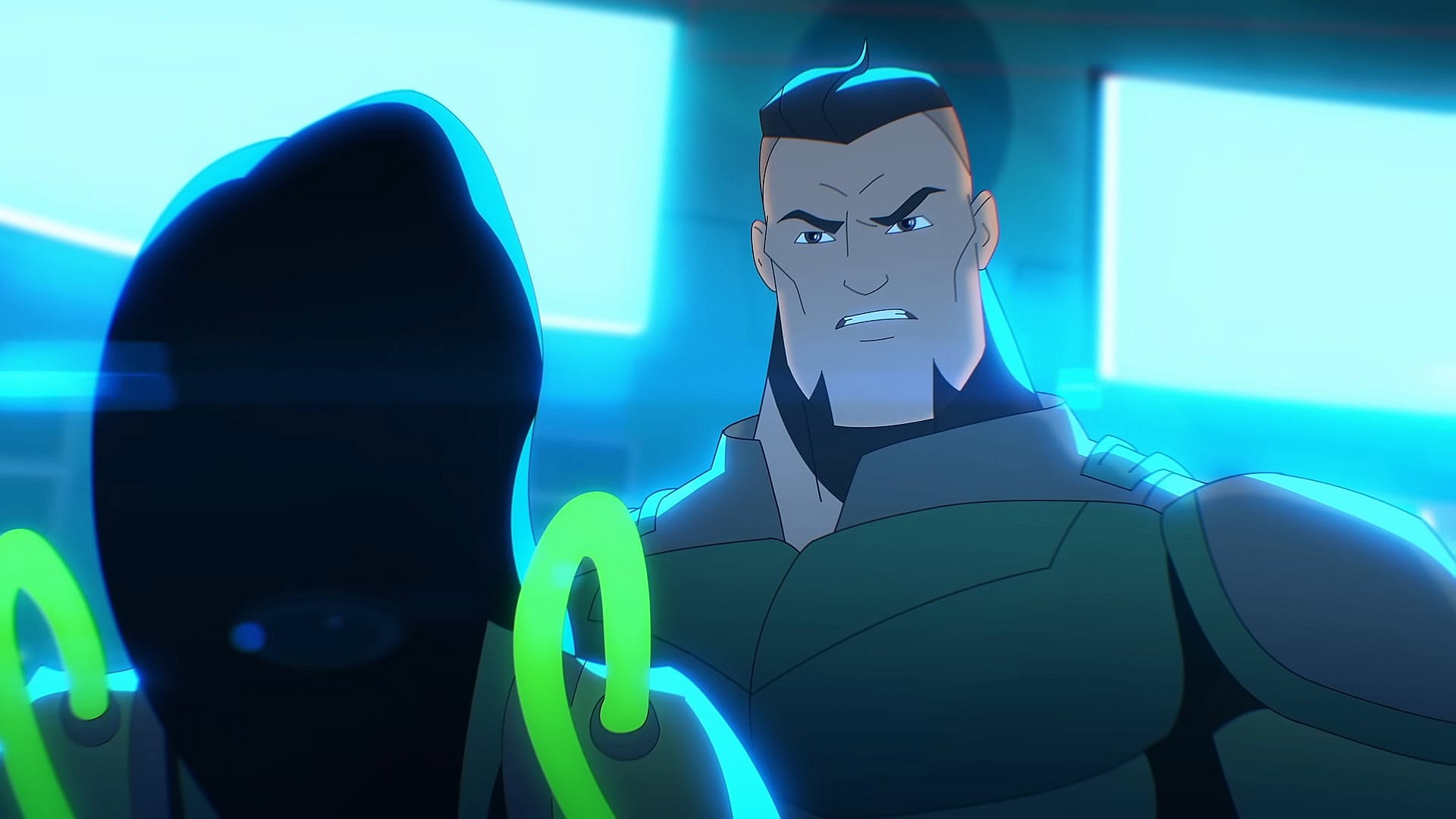Opinion: Chuck Dixon And Joe Bennett’s ‘Alphacore’ #1 Proves The Rippaverse Is Not Only Growing Up Fast But Is Also A Real Player In The Comic Book Industry

I’ve made no secret of my anticipation for the release of Alphacore #1 by Chuck Dixon and Joe Bennett, brought to us as the first non-Eric July-scribed title from the Rippaverse. The book has certainly delivered on sales expectations. As of this writing, Alphacore #1 has sold over 12,000 books, marking the third book in a row from the Rippaverse to surpass $1 million in sales.

For me, as a reader and collector, this book was going to be the one that would tell me whether or not I would become further invested in the Rippaverse. While I enjoyed Eric’s efforts on Isom #1 and #2, I had yet to decide if I had really become fully vested as a fan of the Rippaverse Universe itself.
I won’t hide the fact that I’ve been a fan of Rippaverse founder Eric July’s work in multiple other arenas prior to his efforts in the comic book industry, so I recognize that I naturally look at his work with a certain amount of bias.

For me, Alphacore was going to be the litmus test of how July is handling not just the role of comic book creator, but comic book publisher. Bringing in industry veterans Chuck Dixon and Joe Bennett to helm the first project not written by himself sent a message that Eric wasn’t playing around, but did it deliver?
Today, I’ll break down the basics of the plot, doing my best to avoid any major spoilers, provide my thoughts on the Good and the Bad of Alphacore #1, and deliver my Final Verdict.
The Plot
Alphacore #1 starts off with some big action right off the bat, followed by a giant splash page that sucks the reader into the action before they have a chance to take a breath. Bennett uses some really grandiose layouts in these early pages to give this book a big-time feel from the jump.
Alphacore — the special three-person police unit consisting of super-powered ‘Excepts’ consisting of Bryan Solari, Ingrid Valdez, and just-call-him Braxwell — intervene in a series of petty Except-related crimes that turn out to have a connection to a larger plot aimed at taking down Alphacore.

We meet a pair of villains — Michael and Lillian — who appear somewhat generic on the surface but have fairly dynamic personalities and conflicts of their own. They are not fans of Alphacore for reasons that aren’t made wholly clear, but we can postulate that whatever this pair is up to doesn’t pair well with a new super-powered police unit.
Bryan Solari seems to be the default leader of this group of Alphas (a line of dialogue from one of the civilian characters indicates this is the origin of the group name), and it isn’t long before we see that he is more than willing to bend the rules put in place for when the Alphacore team can intervene in a police matter. This leads to plenty of conflicts with the team’s civilian counterparts, as well as within the tension-so-think-you-can-slice-through-it relationship between Solari and Valdez.

Meanwhile, Braxwell just does his thing in silence, serving as the ‘Snake Eyes’-esque silent-yet-effective enforcer of the group. We don’t know much about Braxwell, but we know he gets the job done and doesn’t ask questions.
As the story unfolds, Solari continues to overstep his bounds in taking charge of the investigation as we learn more about the larger plot that connects the various Excepts that Alphacore is dealing with.

Whether or not the plot is foiled, I’m just going to have to leave you hanging if you haven’t read the book, as I’m striving to keep this review as spoiler-free as possible. But there is certainly a twist to the ending that I didn’t see coming, though looking back, it was subtly foreshadowed by Dixon earlier in the issue.
Now, let’s take a look at the Good and the Bad when it comes to Alphacore #1.
The Good
I keep thinking to myself that Alphacore has the vibe of early 90’s Valiant comics — and I love early 90’s Valiant books. I would describe these books as having a slightly more adult and serious tone than what you would typically get from mainstream Big Two superhero books — while still operating in the setting of what is clearly a superhero universe.

The presence of Chuck Dixon is felt the most in the dialogue. No offense to Eric July, who put in a commendable effort as a first-time writer on ISOM, but Dixon’s thirty-year career as a comic book writer really shines as a major upgrade for Alphacore. The dialogue is purposeful and efficient, always serving to advance the plot, provide insight into a character, and occasionally deliver a laugh.
Dixon uses very little exposition. Almost everything about the plot we learn from the natural dialogue and actions of the characters. Dixon is a master at this type of storytelling.
Despite not fully knowing their motivations, the villains are an interesting pair and have their own dynamic that entertains while setting them apart from a more generic ‘take over the world’ type villain. It’s clear there is more to these two than is being revealed in this issue, and it will be interesting to see how they tie into the greater Rippaverse lore.

Even the ‘throwaway’ villains that Alphacore encounters are more than generic — they each have very distinct characteristics and moments that give us a glimpse into their own personalities and motivations. These villains are people, too, dammit!
I loved Bennett’s art for the most part. In the midst of the 96 pages of action, the use of the double-splash pages didn’t feel overbearing and were placed far enough apart that they made some of the more impactful moments of the story hit harder. I had a few issues with it that I will discuss in the ‘Bad’ section, but for the most part, this is the same Joe Bennett whose work I have enjoyed for well over two decades now.
The Bad
Let’s just start with something I was hoping to get past but haven’t yet… the name of the book and the team. Maybe ‘Alpha’ and ‘Core’ are power words of a sort, but when you put them together, it feels like a ChatGPT-generated superhero team name. I’m not sure if the one-off line about “alphas” is supposed to be the real justification for the team name… but boy, I am just not feeling the title.

I didn’t feel we learned enough about the motivations of the main characters or the villains. We know what they want to do, but not so much why they want to do it. We get hints through the dialogue, and while I normally wouldn’t expect to have so much laid out in the first issue, at 96 pages, this is more of a trade paperback first story arc, and I would have liked a little bit more backstory on the individual characters, Alphacore itself, or the villains Michael and Lillian.
While Dixon’s dialogue is generally great, Ingrid did use one line during her standoff with a villain that I have heard versions of in other mediums, and it felt a bit forced and out of place to me.

As for the art, occasionally, Bennett’s faces of some of the characters look a bit too similar to some of the civilian counterparts. For example, in one of the scenes, Ingrid’s face looks nearly identical to that of the civilian woman she is working with, which threw me off a bit while reading.
And while Bennett’s rendering of Alphacore’s costumes leaves no real complaint, the costume designs themselves also come across as somewhat generic, I suppose fitting with the equally generic “Alphacore” name.
The Final Verdict
My above criticisms are mostly nitpicks — the truth is, I LOVED this book.
Dixon expertly merges the concepts of a police procedural story set over the superhero backdrop of Florespark, Texas. Meanwhile, it maintains enough elements of both to feel like it could be considered a legitimate entry in either genre.
There are some drawbacks, as pointed out above, and this isn’t going to win an Eisner award, but Alphacore delivered a solid, entertaining read that is really what the Rippaverse needed. This book doesn’t feel like it was written by a fan who is just getting his feet wet with writing comics, as Eric July would readily admit he was writing ISOM #1 and #2.

Alphacore is a real-life, honest-to-God, professional superhero comic book and feels like one. With the added bonus that I don’t feel *any* political message being pushed upon me as a reader, and what a refreshing feeling that is.
I give the writing a 4 out of 5 and the art a 4 out of 5, giving Alphacore #1 a Final Verdict of 8/10, providing a fun book that proves the Rippaverse is growing up fast as a real player in the comic book industry.
